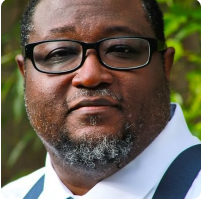Family life education is an informative, educational approach to assisting individuals in living authentic and productive lives. Utilizing a family systems perspective, most family life educational programming takes place in a classroom-style kind of setting and can even be provided through educational materials, such as books, DVD’s, CD’s, social networking, Podcasts, and blogs. The goal of family life education is to teach (research-based content) skills that aid individuals in making the best informed decisions about their lives. Topics can include: goal-setting, parenting, career development, dating and romantic relationships, health and wellness, and/or debt-management and home ownership.
Youth Development supports the growth and development of young people. Leaders, individuals, and organizations in the field, such as The Boys and Girls Club of America or Reel Grrls, offer programs and various learning experiences that engage, encourage, and empower young people to successfully transition into adulthood. Some organizations partner with other non and for-profit organizations, others partner with schools, religious institutions, and colleges and universities, and others, such as summer camps, for the most part, do not partner with other organizations, but are offered by state, city, and privately owned entities.
Adult education, often referred to as continuing education, is the umbrella term for the practice of teaching and lifelong learning for adults. Adult or continuing education offers an array of learning experiences. From vocational training to personal enrichment to workplace development as well as GED or adult literacy classes, adult education is focused on adult growth and development. Many continuing education courses are offered by colleges and universities via their Continuing Education or Extension Departments, as well as via many community-based, non-profit organizations.
Community education is the development of individuals, groups, institutions, and communities. Leaders, individuals, and organizations in the field deliver educational programming aimed at inspiring, educating, and connecting with individuals in the community to live their best lives. The purpose of community education is to positively influence the behavior of individuals and communities. Where a youth development organization will serve the youth, and an adult or continuing education organization will serve adults, community education-focused organizations serves all ages of the community.


I really appreciate your insight on education- learning is not confined to k-12 and higher education. That being said, what are your thoughts on online schooling for middle school?
ReplyHailey,
ReplyThanks for the compliment. I think it can be successful for some students. That said, the best model would be synchronous learning, that involves a set time for students and teacher to discuss the material live via video.
Dr. Will